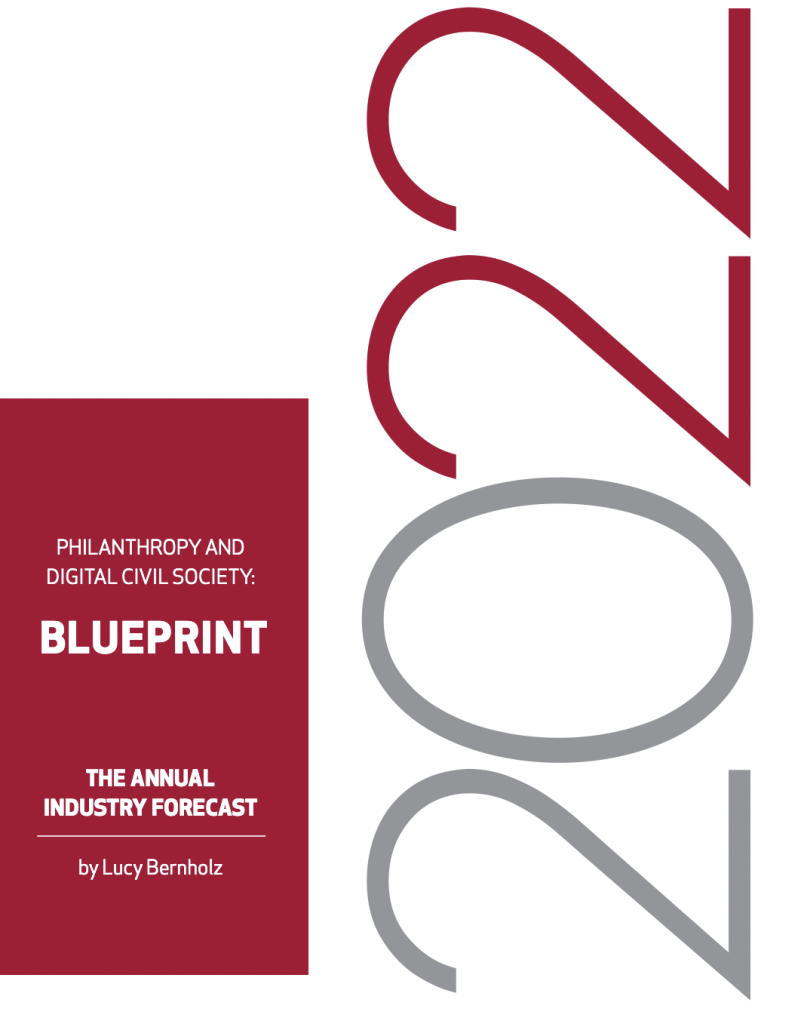Stanford PACS 2021: A Special Progress Report
As we weathered 2021 and the challenges that COVID-19 and the capitol riots posed to our personal, professional and civic lives, the Stanford PACS community maintained a unique dedication to our founding idea—assembling a diverse, dedicated community of researchers and leaders to thoughtfully probe both new and entrenched problems that threaten civil society.
We are deeply proud of the contributions of our faculty, staff, practitioner fellows, and student researchers. From very concrete human-focused work on homelessness, health, and anti-racism, to systems-focused work on the impacts of deceptive digital designs, reforming Big Tech, digital technologies’ impacts on democracy, and localized guides to improve philanthropy, our convenings, publications, and research initiatives continue to directly address the big questions and pressing needs of this moment.
Stanford PACS by the Numbers
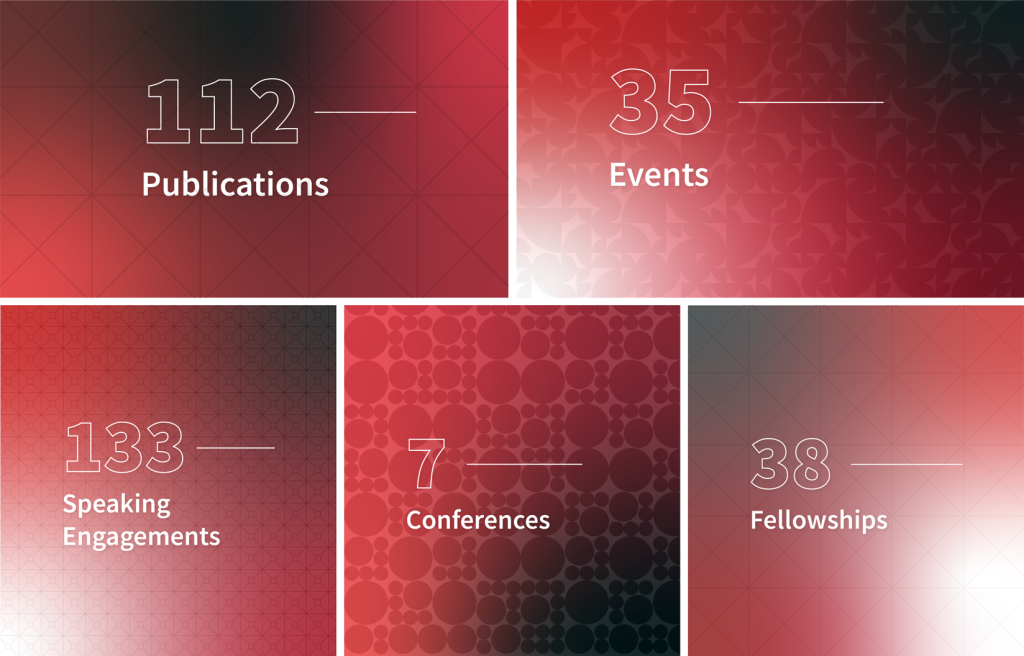
Our fellowship programs and student grants exemplify our interdisciplinary orientation and commitment to increase interaction and collaboration among thinkers and practitioners. The recipients of our grants and fellowships in 2021 represented a diversity of experience and expertise and brought interesting new perspectives on topics in which there is active work underway at PACS, such as political polarization, threats to democracy, criminal justice reform, the intersection of digital rights and human rights, and environmental sustainability, to name a few.
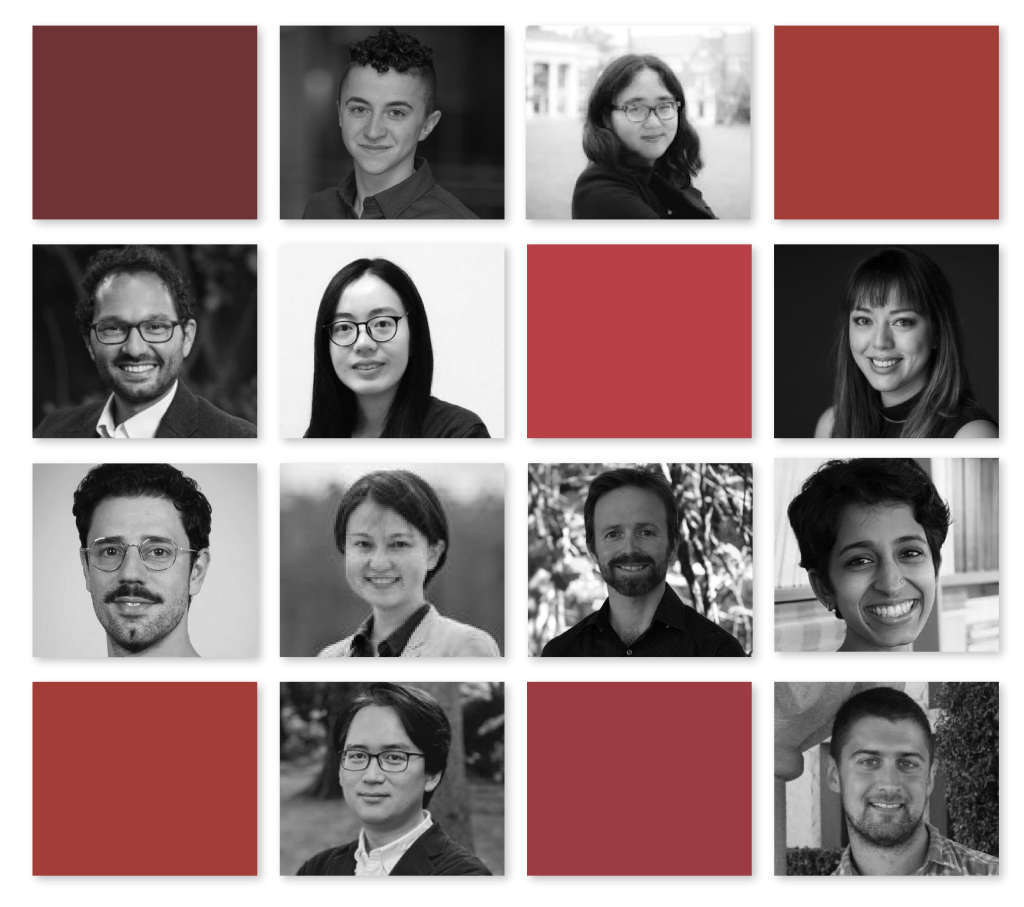
11 Postdoctoral Fellows
The various disciplines represented in the current cohort of postdocs:
Social Psychology
Sociology
Political Science
Computer Science
Communication
22 Practitioner Fellows
The 2021 Practitioner Fellows came from the following regions:
East Africa
Sub-Saharan Africa
Europe
United States
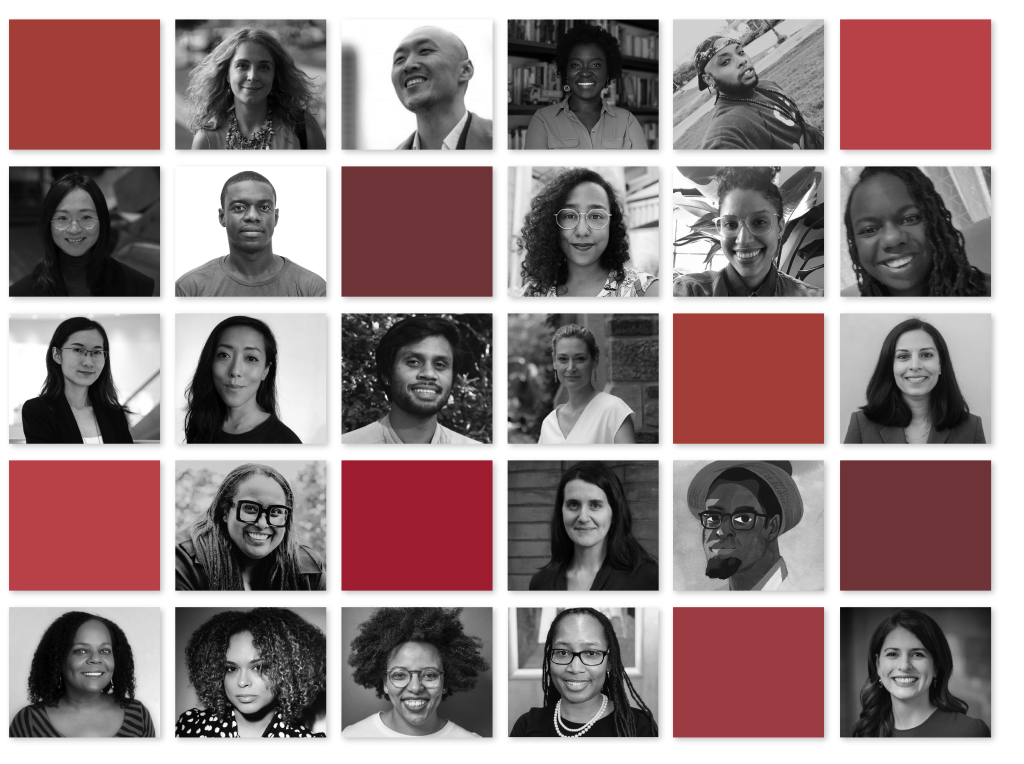
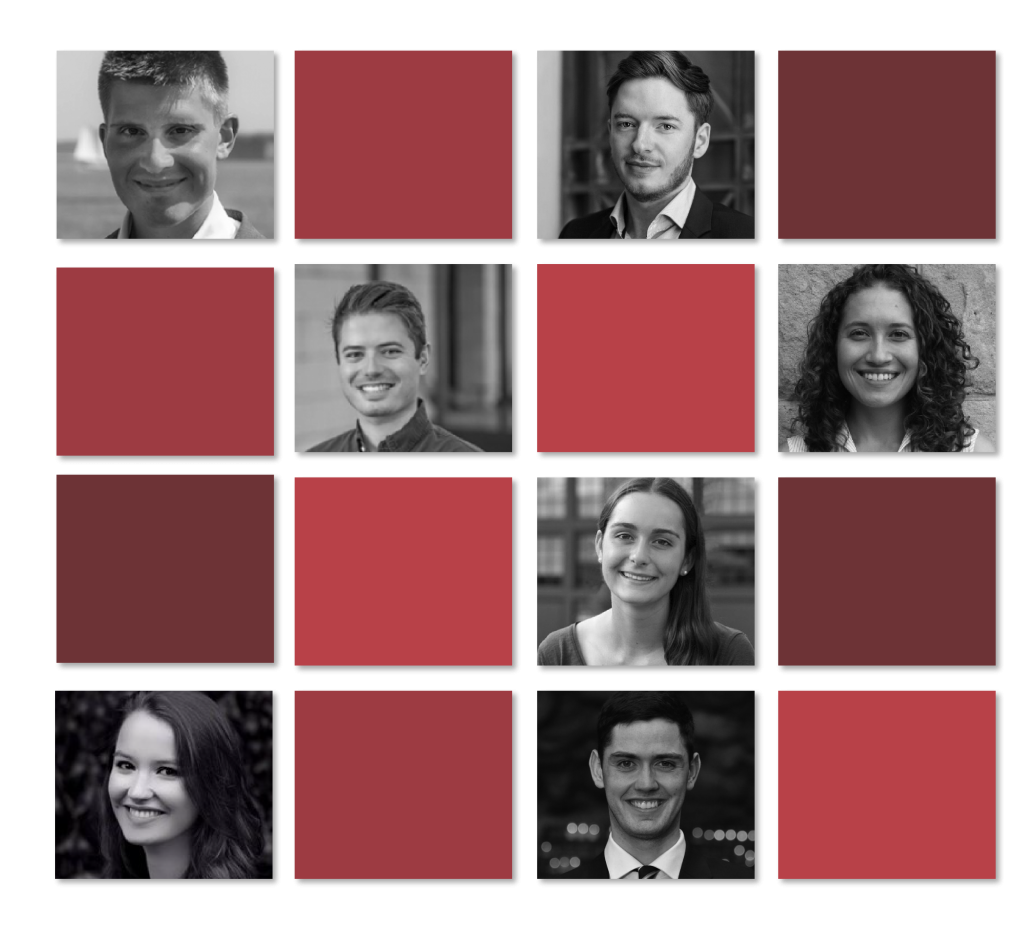
Small Grant Recipients
$18,000 in small grants to support undergraduate and graduate student projects.
The goal of our programs is to offer scholars and leaders the opportunity to think deeply about their work, invite critical feedback and attention from their peers and the broader PACS community, and test new ideas in a supportive environment.
Years of dedicated research and exploration underpin each of the highlighted accomplishments below, made possible in large part with the steady support of our incredible advisory board and growing community of donors. Taking on these complex issues requires a special kind of bold provocation and willingness to address uncomfortable questions. We are deeply grateful for the privilege of being supported by a community eager to explore the hardest questions with us—to achieve a stronger civil society and more meaningful philanthropy for all.
ADVANCING IDEAS TO IMPROVE SOCIETY

Homelessness, a System Perspective
Homelessness is one of the toughest and most troubling societal challenges of our time. Researchers at PACS’ Global Innovation for Impact Lab concluded a case study that challenges common assumptions about the root causes of homelessness and narratives that put the blame on the victims themselves rather than reflecting more deeply about the architecture of our society that generates and perpetuates mass homelessness. The paper pushes us to adopt a system perspective rather than a simple solution perspective on this complex societal problem.
Download the full paper.
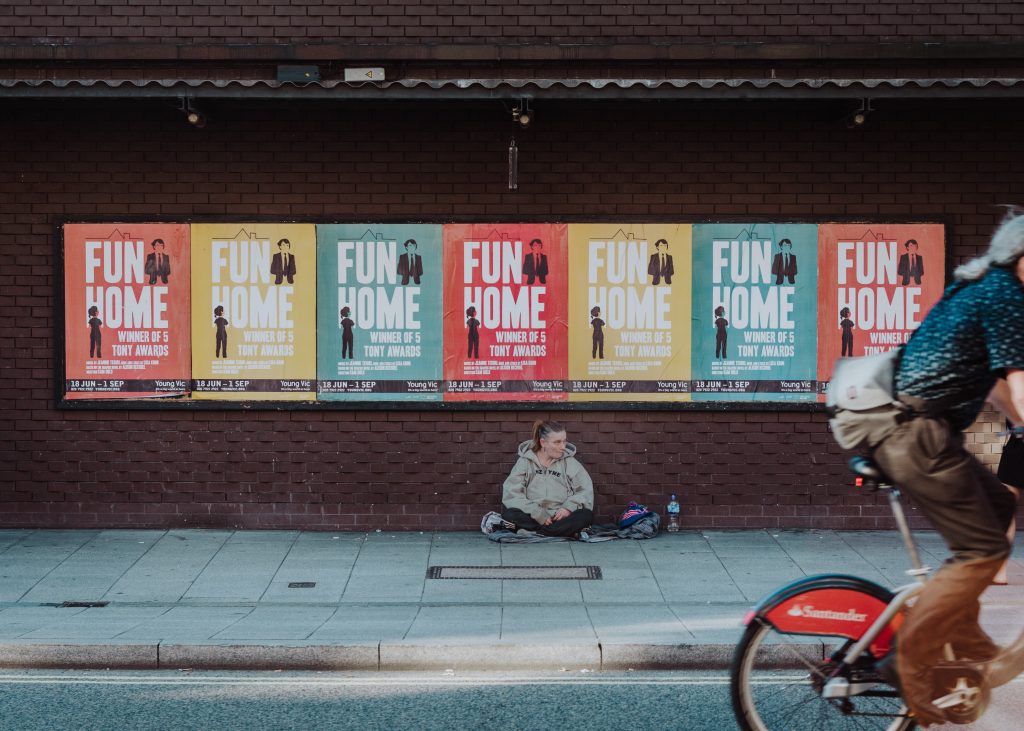
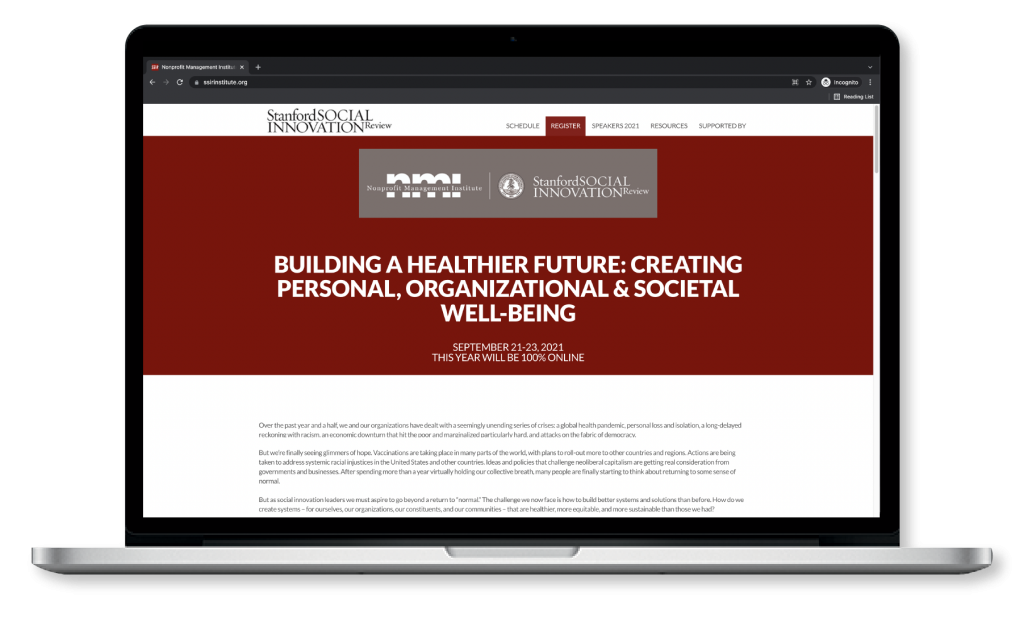
Building A healthier Future: Creating Personal, Organizational, & Societal Well- Being
On September 21-23, 2021, SSIR hosted its second virtual Nonprofit Management Institute, an annual convening that brings together nonprofit and business executives, noted academics, and prominent public sector leaders to explore pathways to strengthening and renewing our collective commitment to improving society. The theme for the 2021 NMI was “Building a Healthier Future: Creating Personal, Organizational & Societal Well-being.” The conference drew 373 participants from across 34 states in the U.S. and 16 countries abroad.
Read more.
Anti-Racist Technologies for a Just Future
Rapidly developing technologies can be an unprecedented force for good, but too often codify and amplify existing forms of racial inequality, discrimination, and bias. On May 19-20, 2021, Stanford PACS co-hosted, along with the Stanford Center on Comparative Studies in Race and Ethnicity (CCSRE) and Stanford HAI (Human-Centered Artificial Intelligence), a free, online conference that brought together researchers, policymakers, technologists, and advocates to address technology’s new threats to racial equity and new tools for a more just future. Panelists discussed a range of contemporary topics such as smart cities and racial justice, built-in bias in digital tools such as Blockchain and Digital ID, community organizing and accountability, and worker equity in digital food supply chains.

2021 China Social Innovation Summit
SSIR hosted its second virtual China Social Innovation Summit on November 16-17 (Pacific Time). The theme for the 2021 Summit was “New Connectivity Creating New Momentum: Three Pathways to Impact,” with the subtopics of “Making Business for Good the New Normal,” “Technology for Good,” and “New Power.” The China Summit was born out of the need for greater cross-cultural dialogue on social innovation, impact investment, philanthropy, and other related topics, and aims to connect leading US, Chinese, and other global scholars, philanthropists, funders, investors, business executives, and nonprofit leaders. This convening evolved out of the annual China Conference of Stanford PACS which was launched in 2012, and is produced in collaboration with the Beijing-based Leping Social Entrepreneur Foundation. The China Summit is designed to support and build the social impact sector in China by providing insights from global changemakers, as well as provide social innovators from around the world with diverse perspectives.
Learn More.
PROPOSING INTERVENTIONS TO
STRENGTHEN DEMOCRACY

Model Redistricting Plans to Help Redraw Congress
Draw Congress, a project developed under Stanford Law School’s Law and Policy Lab, is one of many efforts currently underway to address redistricting related issues. Sixteen law students and six Stanford undergraduate students are participating in a crash course on the difficult process of drawing congressional maps that align with the 2020 U.S. Census. The initiative is led by renowned voting expert Professor Nathaniel Persily, the James B. McClatchy Professor of Law at Stanford and co-director of Stanford PACS’ Program on Democracy and the Internet. The goal of this project is to educate our students and the general public about this difficult and sometimes fraught undertaking, showing how districts can be drawn in a non-partisan, legally defensible manner. We hope these maps, eventually made for all 435 U.S. House districts, will show how communities can be fairly represented and, unlike most incumbent-drawn maps, be transparent about redistricting decisions.
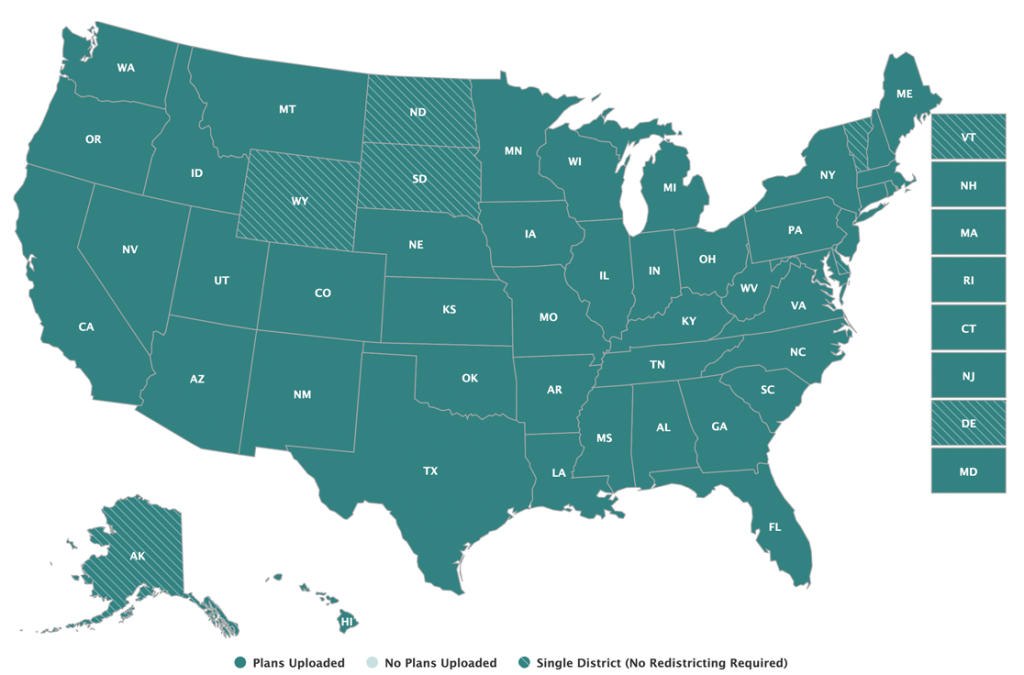

The Strengthening Democracy Challenge
Anti-democratic attitudes, support for partisan violence, and extreme levels of partisan animosity have troubling consequences for democracy. In the fall of 2021, researchers at Stanford PACS’ Polarization and Social Change Lab launched the Strengthening Democracy Challenge to invite proposals for interventions that will reduce these outcomes. The researchers will then test selected interventions to see how well they work, in a massive, online experiment. 252 proposals were submitted by academics and nonprofit organizations working to bridge political divides. The winners will be announced in June 2022.
Learn more about the challenge.
The Platform Transparency and Accountability Act
In December 2021, new legislation was introduced to increase transparency and give researchers access to critical data gathered by social media platforms in order to gain insight into key societal issues. The legislation was informed by the October testimony, “Social Media Platforms and the Amplification of Domestic Extremism and Other Harmful Content,” provided by Professor Nathaniel Persily, Stanford Law professor and co-director of Stanford PACS’ Program on Democracy and the Internet, and presented before the United States Senate Committee on Homeland Security and Governmental Affairs. The legislation represents a critical step in holding large social media platforms accountable and allows researchers and policy makers deeper insight into challenges threatening democracy.
Read the testimony and view the legislation.

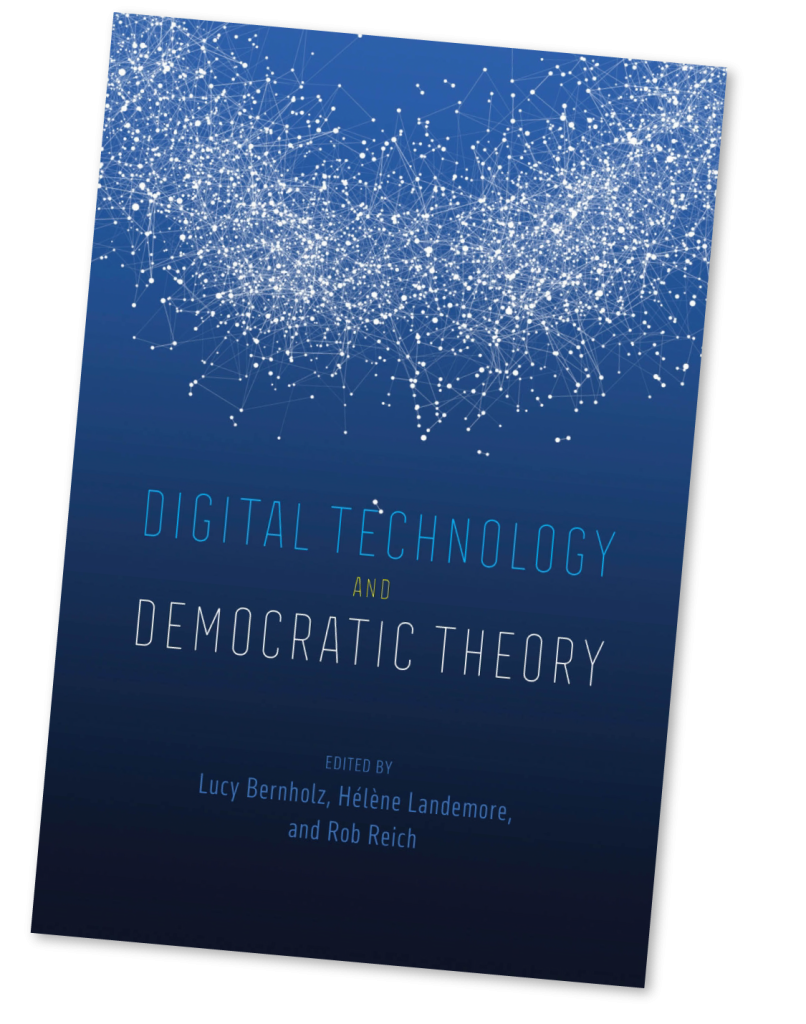
Digital Technology and Democratic Theory
One of the most far-reaching transformations in our era is the wave of digital technologies upending nearly every aspect of life. Work and leisure, family and friendship, community and citizenship have all been modified by now-ubiquitous digital tools and platforms. Stanford PACS faculty co-director Rob Reich and Senior Research Scholar Lucy Bernholz, along with Helene Landemore of Yale University, co-edited Digital Technology and Democratic Theory, an edited volume that looks closely at one significant facet of our rapidly evolving digital lives: how technology is radically changing our lives as citizens and participants in democratic governments. To understand these transformations, this book brings together contributions by scholars from multiple disciplines to wrestle with the question of how digital technologies shape, reshape, and affect fundamental questions about democracy and democratic theory. Learn more.

DEVELOPING FRAMEWORKS FOR PUBLIC
INTEREST TECHNOLOGY
System Error:
Where Big Tech Went Wrong And How We Can Reboot
Stanford PACS faculty co-director Rob Reich, along with fellow Stanford professors Jeremy Weinstein and Mehran Sahami, authored a forward-thinking manifesto that has received much attention both within and outside academia. System Error reveals how Big Tech’s obsession with optimization and efficiency has sacrificed fundamental human values and outlines steps we can take to change course, renew our democracy, and save ourselves. The book was reviewed by leading publications including the New York Times and the Wall Street Journal, and the authors were interviewed by NPR and featured in the New Yorker.
Get your copy here.
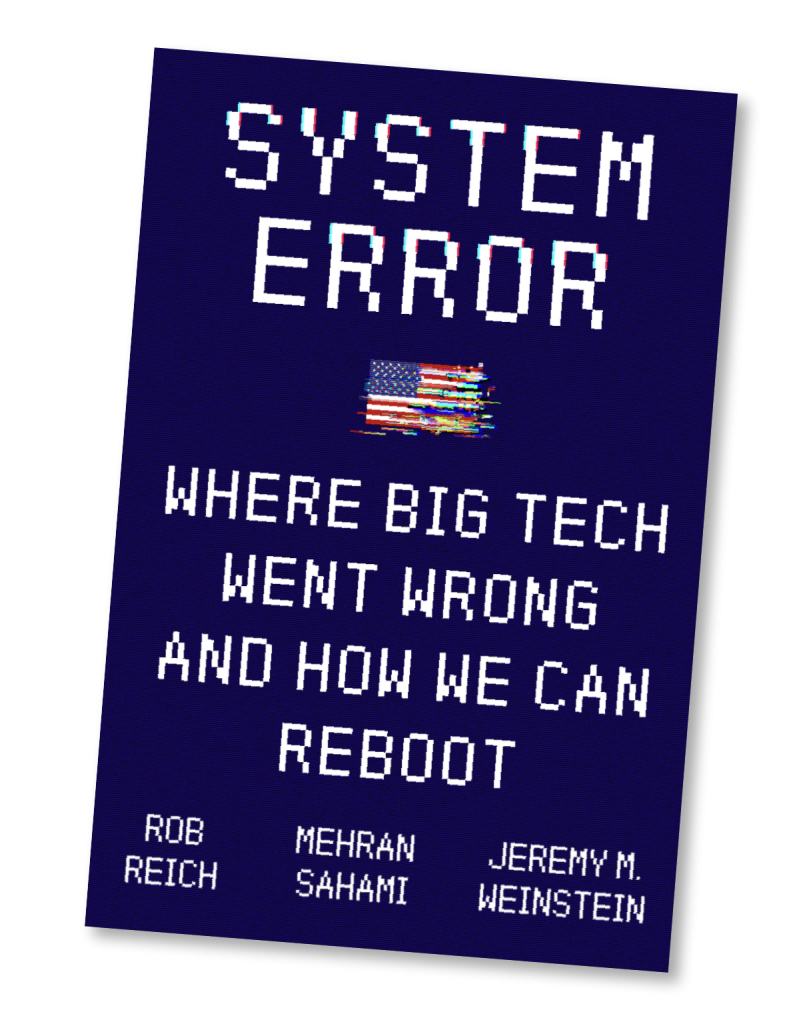

Dark Patterns Tip Line for Identifying Deceptive Digital Designs
The Digital Civil Society Lab at Stanford PACS is now home to the Dark Patterns Tip Line, a platform developed by a team of designers, academic researchers, legal experts, policy specialists, and advocacy-minded individuals. The tipline collects dark patterns and allows scholars to study and better understand how technology is exploiting people. The ultimate vision of the tipline is to leverage this data to combat manipulative practices online through policy reform.
Learn more about the tipline and help take a stand against dark patterns.
EXPANDING RESOURCES TO
IMPROVE PHILANTHROPY

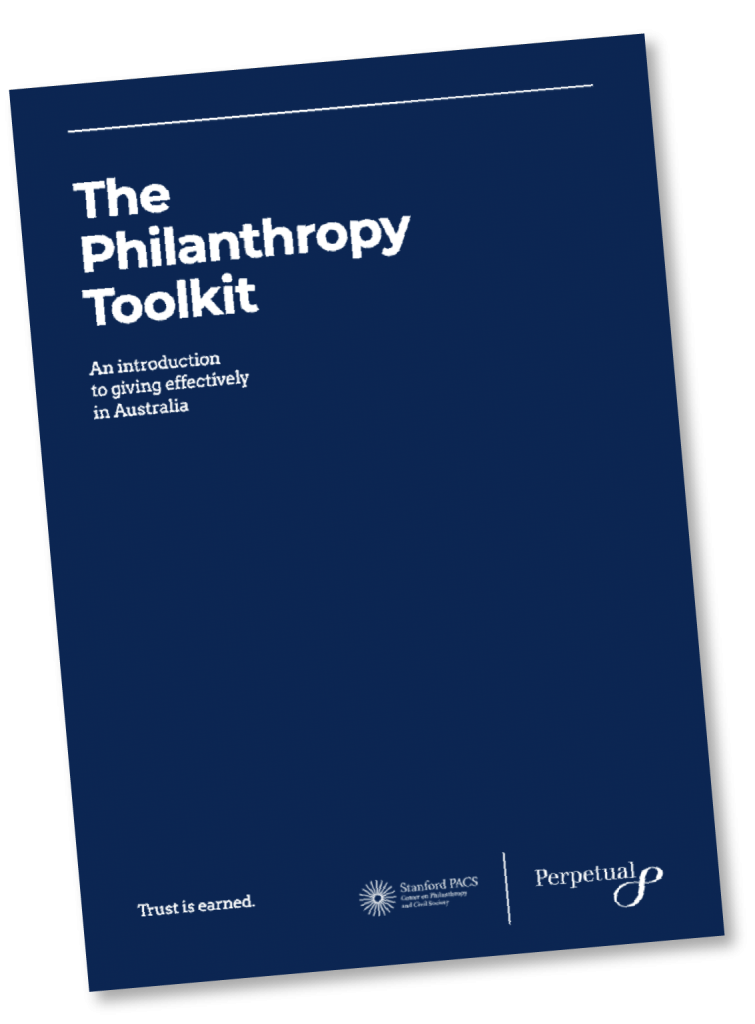
Australian Philanthropy Toolkit
The Effective Philanthropy Learning Initiative at Stanford PACS collaborated with Perpetual Private, a diversified financial services company based in Australia, to launch an Australian Philanthropy Toolkit (the Toolkit), an adaptation of Stanford PACS’ Philanthropy Toolkit for the Australian market. The Toolkit is the first of its kind in Australia, providing a practical step-by-step resource designed to help individuals, families and advisers engage in thoughtful conversations, be effective in their charitable giving and anchor it around what matters most to them throughout their philanthropic journey.
Learn more.
The Guide to Effective Philanthropy for Latin America
Stanford PACS’ Effective Philanthropy Learning Initiative partnered with the Center for Philanthropy and Social Investments (CEFIS) at Universidad Adolfo Ibanez to launch the Guide to Effective Philanthropy for Latin America. This initiative was supported by the Chilean Family Business Association (AEF) and Goldman Sachs and is intended to advance the ongoing work in the region to highlight the role of philanthropy and social investments in strengthening civil society.
Download the Guide.
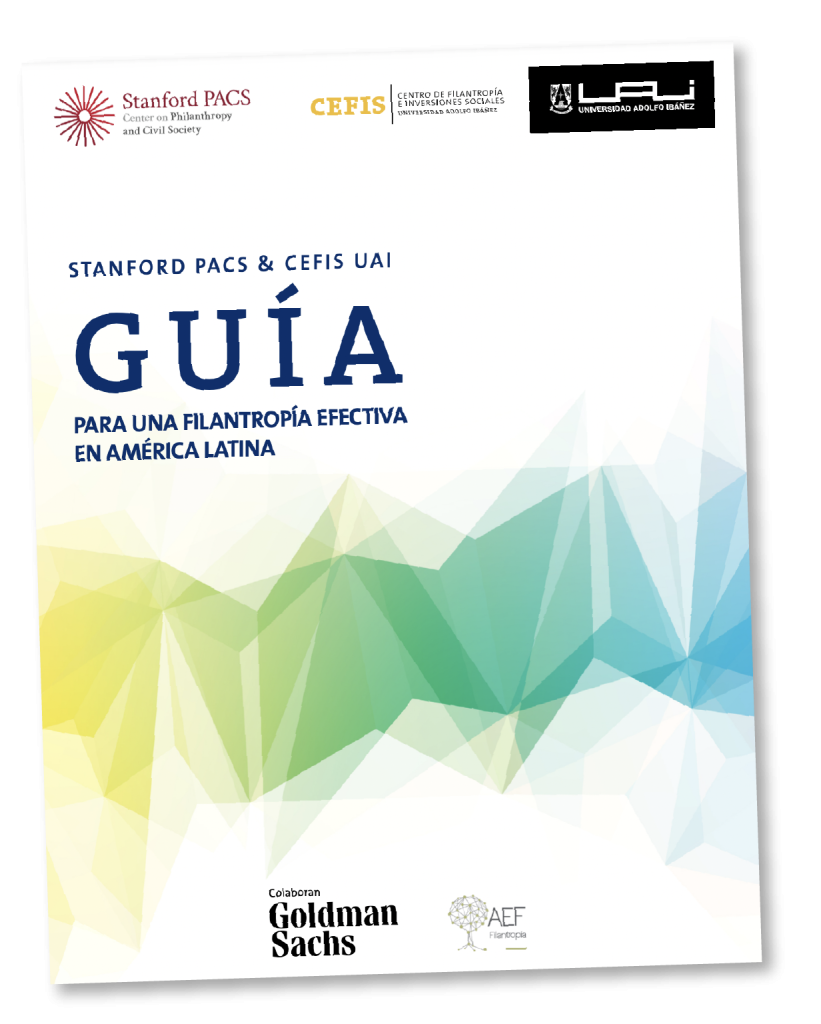
How We Give Now
Stanford PACS Senior Research Scholar Lucy Bernholz published a new book that draws on the voices of ordinary people across the country to spotlight the everyday ways that we give to and participate in our communities. How We Give Now is a call to re-imagine what we include in what is called philanthropy, since people do a whole lot more than just give money to charity.
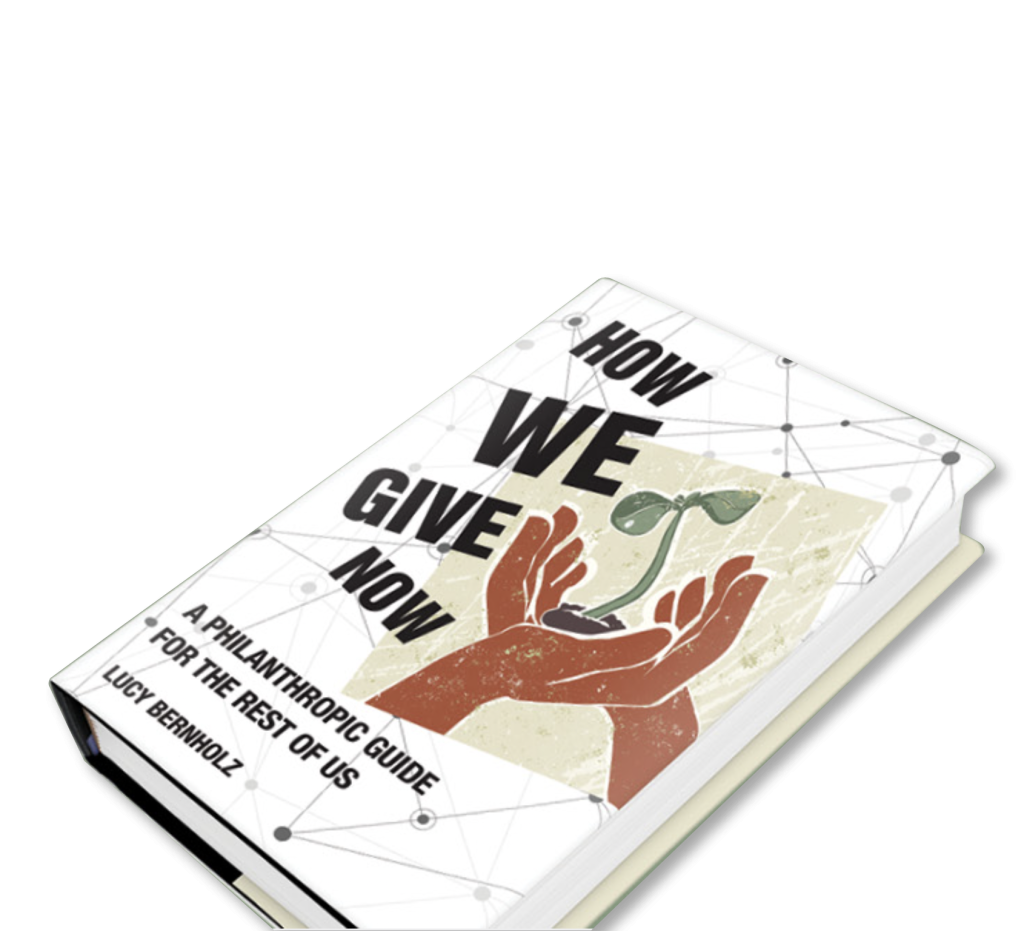
Philanthropy and Digital Civil Society: Blueprint 2022
Philanthropy and Digital Civil Society: Blueprint is an annual industry forecast about the ways we use private resources for public benefit in the digital age. Each year, the Blueprint provides an overview of the current landscape, points to big ideas that matter, and directs your attention to horizons where you can expect some important breakthroughs in the coming year.
Published in December 2021, the 2022 edition is organized around an appeal to the philanthropy sector on behalf of civil society to abandon existing practices that are preventing many of the changes that philanthropic organizations and individuals purport to pursue. It calls for philanthropy to examine its role in preserving the status quo rather than advancing change and offers a blueprint for reform in the sector.
Download Blueprint 2022.
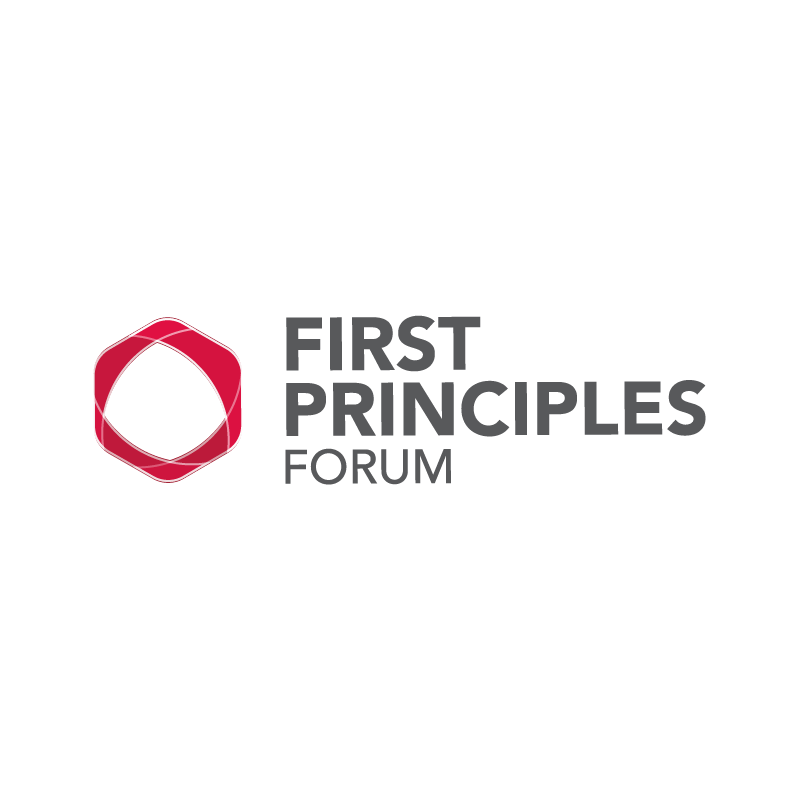
First Principles Forum
The First Principles Forum convenes founders, early employees, and investors in the technology sector to advance their thinking on impact and philanthropy and challenge them to think consciously about how they can align their values in every sphere of their lives to effectively deploy all of their resources – money, time, skills, influence – for positive social change. The 2021 Forum was a virtual half-day event that featured leaders from the technology and social sectors such as Stewart Butterfield (Slack), Jen Rubio (Away), Raylene Yung (Facebook, Stripe), and Rhonda Allen (/dev/color). The plenary sessions covered topics such as workplace equity and new ways of giving, while small group discussions allowed participants to dive deep into key issues of interest, such as addressing structural racism, ways to take action on climate change, and building a more equitable economy post-COVID.
Learn More.
Philanthropy Innovation Summit 2021
The Philanthropy Innovation Summit is a signature event of Stanford PACS, designed exclusively for individual and family philanthropists. The Summit and related convenings focus on peer learning with top leaders and experts in the field of philanthropy and social innovation and are intended to provide participants with the tools and actionable resources to create meaningful social change.
The 2021 Summit was a virtual half-day event that combined high-level plenaries with small group sessions and explored some of the most pressing issues of our time in a carefully curated, non-solicitation environment. Speakers included Mayor Michael R. Bloomberg, Dr. Fei-Fei Li, Dr. Judith Rodin, David Siegel, Darren Walker, and Laura Arrillaga-Andreessen, among others, and covered a wide range of topics such as global COVID-19 response, public interest technology, climate philanthropy, and investing in mental health.
Learn More.

